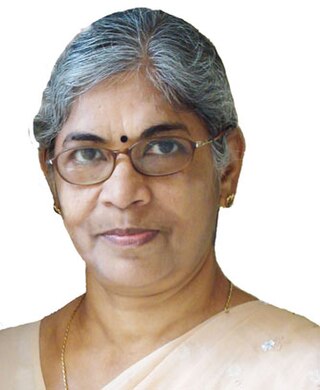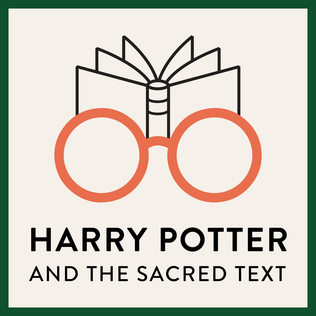
The John Newbery Medal, frequently shortened to the Newbery, is a literary award given by the Association for Library Service to Children (ALSC), a division of the American Library Association (ALA), to the author of "the most distinguished contributions to American literature for children". The Newbery and the Caldecott Medal are considered the two most prestigious awards for children's literature in the United States. Books selected are widely carried by bookstores and libraries, the authors are interviewed on television, and master's theses and doctoral dissertations are written on them. Named for John Newbery, an 18th-century English publisher of juvenile books, the winner of the Newbery is selected at the ALA's Midwinter Conference by a fifteen-person committee. The Newbery was proposed by Frederic G. Melcher in 1921, making it the first children's book award in the world. The physical bronze medal was designed by Rene Paul Chambellan and is given to the winning author at the next ALA annual conference. Since its founding there have been several changes to the composition of the selection committee, while the physical medal remains the same.

Between the Lions is an American animated/live-action/puppet educational children's preschool television series designed to promote reading. The show is a co-production between WGBH in Boston and Sirius Thinking, Ltd., in New York City, in association with Mississippi Public Broadcasting, the distributor from seasons 1–10, in Mississippi. The show won nine Daytime Emmy awards between 2001 and 2007. Although it is created by alumni of the fellow PBS children’s show Sesame Street, Between the Lions was not created by Sesame Workshop, nor was it produced with their involvement in any way. The show ran from April 3, 2000 to November 22, 2010, taking over the schedule slot held by The Puzzle Place upon its debut. This TV show was a companion piece to Sesame Street.
Conan the Librarian is a parody of Robert E. Howard's Conan the Barbarian that has become a literary trope, and has appeared in various media, including film, radio, television, comics, and fan fiction. Based on the similarity in the sound of the word "librarian" to "barbarian", and their near opposite meanings, the phrase is a parodic coinage, and its origins and recurrence are likely due to both independent invention and imitation. There is no evidence that the character has an origin in Monty Python's Flying Circus in the 1970s.

Love in the Time of Cholera is a novel written in Spanish by Colombian Nobel Prize-winning author Gabriel García Márquez and published in 1985. Edith Grossman's English translation was published by Alfred A. Knopf in 1988.

Nancy Pearl is an American librarian, best-selling author, literary critic and the former Executive Director of the Washington Center for the Book at Seattle Public Library. Her prolific reading and her knowledge of books and literature first made her locally famous in Seattle, Washington, where she regularly appears on public radio recommending books. She achieved broader fame with Book Lust, her 2003 guide to good reading. Pearl was named 2011 Librarian of the Year by Library Journal. She is also the author of a novel and a memoir.

Oprah's Book Club was a book discussion club segment of the American talk show The Oprah Winfrey Show, highlighting books chosen by host Oprah Winfrey. Winfrey started the book club in 1996, selecting a new book, usually a novel, for viewers to read and discuss each month. In total, the club recommended 70 books during its 15 years.

Richard & Judy was a British television chat show presented by the married couple Richard Madeley and Judy Finnigan. The show originally aired on Channel 4 from 26 November 2001 to 22 August 2008, but later moved to digital channel Watch from 7 October 2008 to 1 July 2009.

Booklist is a publication of the American Library Association that provides critical reviews of books and audiovisual materials for all ages. Booklist's primary audience consists of libraries, educators, and booksellers. The magazine is available to subscribers in print and online. It is published 22 times per year, and reviews over 7,500 titles annually. The Booklist brand also offers a blog, various newsletters, and monthly webinars. The Booklist offices are located in the American Library Association headquarters in Chicago’s Gold Coast neighborhood.
A book talk is what is spoken with the intent to convince someone to read a book. Booktalks are traditionally conducted in a classroom setting for students; however, booktalks can be performed outside a school setting and with a variety of age groups as well. It is not a book review, a book report, or a book analysis. The booktalker gives the audience a glimpse of the setting, the characters, and/or the major conflict without providing the resolution or denouement. Booktalks attempt to make listeners care enough about the content of the book to want to read it. A long booktalk is usually about five to seven minutes long and a short booktalk is generally 180 seconds to 4 minutes long.
Bibliotherapy is a creative arts therapy that involves storytelling or the reading of specific texts. It uses an individual's relationship to the content of books and poetry and other written words as therapy. Bibliotherapy partially overlaps with, and is often combined with, writing therapy.

The National Book Foundation (NBF) is an American nonprofit organization established with the goal "to raise the cultural appreciation of great writing in America." Established in 1989 by National Book Awards, Inc., the foundation is the administrator and sponsor of the National Book Awards, a set of literary awards inaugurated in 1936 and continuous from 1950. It also organizes and sponsors public and educational programs.

Lalitha Lenin is an Indian poet in Malayalam.
Goodreads is an American social cataloging website and a subsidiary of Amazon that allows individuals to search its database of books, annotations, quotes, and reviews. Users can sign up and register books to generate library catalogs and reading lists. They can also create their own groups of book suggestions, surveys, polls, blogs, and discussions. The website's offices are located in San Francisco.
One City One Book is a generic name for a community reading program that attempts to get everyone in a city to read and discuss the same book. The name of the program is often reversed to One Book One City or is customized to name the city where it occurs. Popular book picks have been Harper Lee's To Kill a Mockingbird, Ernest Gaines's A Lesson Before Dying, Ray Bradbury's Fahrenheit 451, and Rudolfo Anaya's Bless Me, Ultima.
The Women's National Book Association (WNBA) was established in 1917, as an organization to promote the role of women in the community of the book. This organization includes twelve active chapters in the United States, network members outside regional chapters, and corporate sponsorships. WNBA is a broad-based, non-profit, 501(c)(3) organization offering three distinguished national awards and a longstanding history of literary activism.

Melissa, previously published as George until April 2022, is a children's novel about a young transgender girl written by American author Alex Gino. The novel tells the story of Melissa, a fourth-grade girl who is struggling to be herself to the rest of the world. The rest of the world sees Melissa as George, a boy. Melissa uses the class play, Charlotte's Web, to show her mom that she is a girl by switching roles with her best friend, and playing the part of Charlotte. Scholastic first published the novel on August 25, 2015, and it has had a mixed reaction because of its LGBT+ content. In 2021, Gino retitled the novel Melissa.

Harry Potter and the Sacred Text is an audio podcast founded by Vanessa Zoltan, Casper Ter Kuile, and Ariana Nedelman, and hosted by Vanessa Zoltan and Matt Potts, in which the Harry Potter books are read as a sacred text. Each episode, the characters and context of one chapter in the Harry Potter series are explored through a different central theme like 'vulnerability', 'betrayal', or 'friendship'. The podcast, which charted #2 on the US iTunes Charts a few months after its inception in 2016, has been described as "Bible studies for J.K. Rowling fans".

The Texas Library Association (TLA) is a charitable non-profit group that promotes libraries in Texas. It was founded in 1902. TLA is affiliated with the American Library Association (ALA) and has more than 6,000 members made up of librarians and library workers from academic, public, school and special libraries. Membership also includes library advocates, educators, and vendors. The organization has established annual awards and scholarships that honor excellence in the library profession. It also curates reading lists each year for multiple age groups, ranging from fiction, nonfiction, graphic novels, picture books, to bilingual and multicultural books.
Oprah's Book Club is a television talk show produced for Apple TV+ and hosted by Oprah Winfrey.











